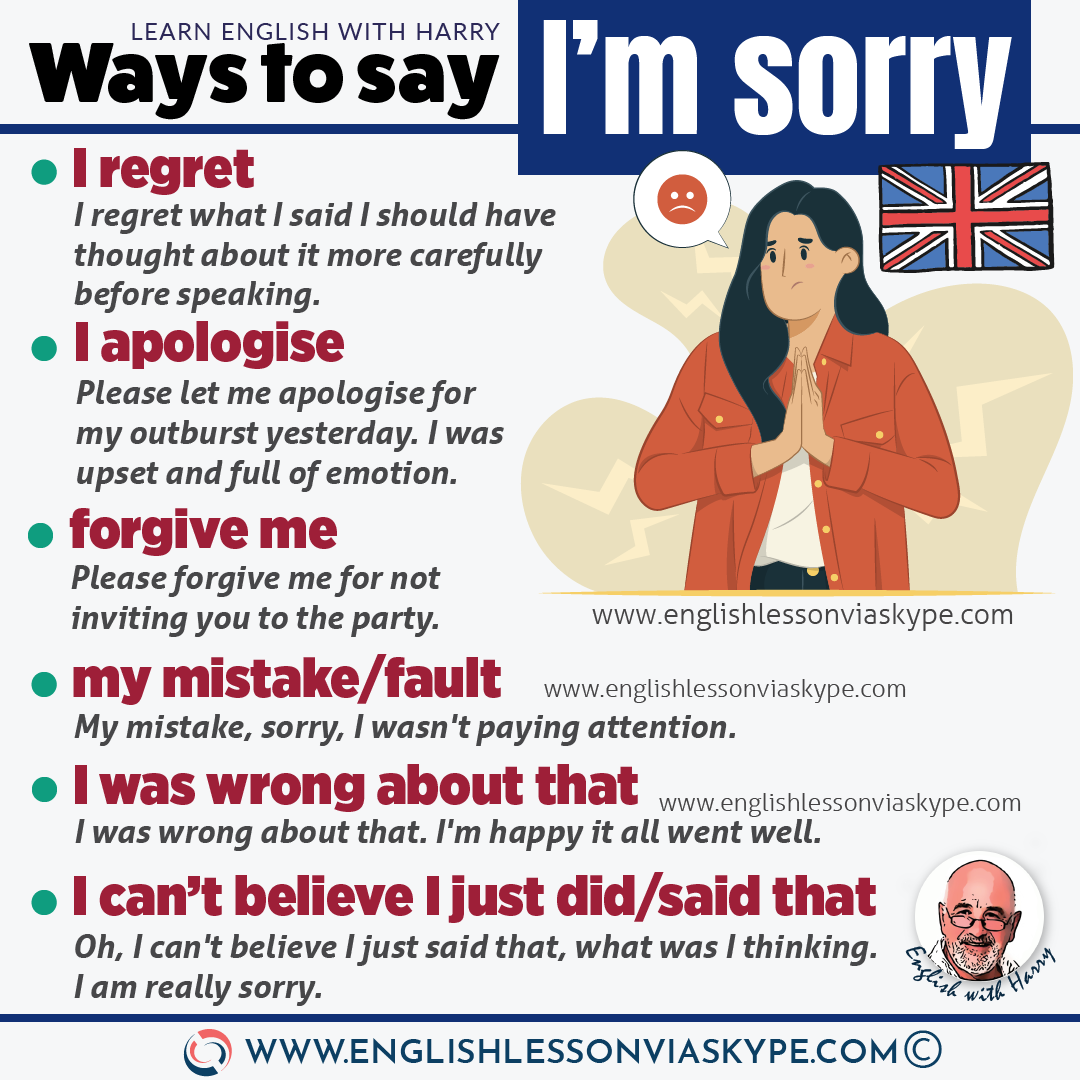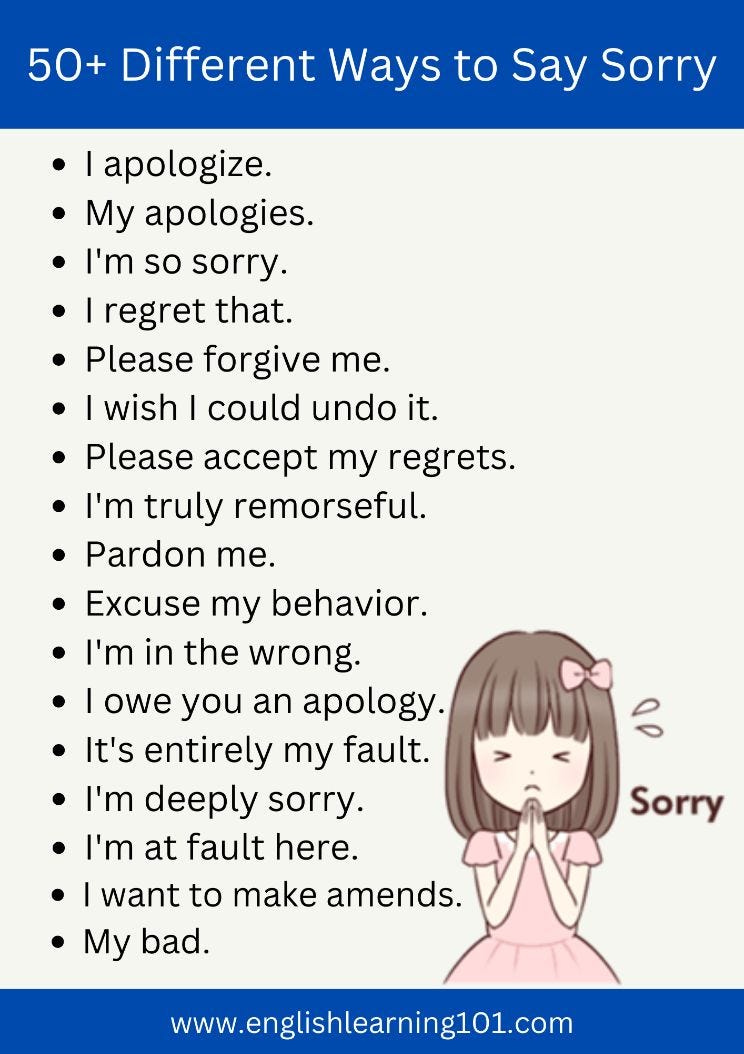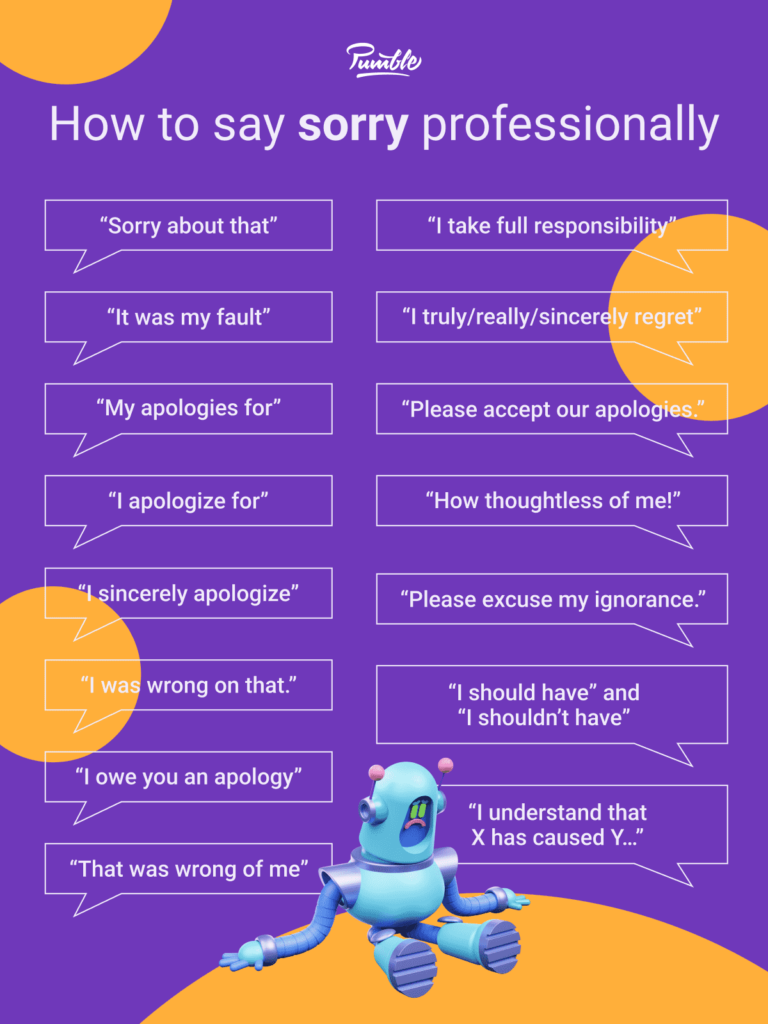How To Say Sorry Without Using The Word Sorry

Imagine you’ve accidentally bumped into someone, sending their coffee cascading down their pristine white shirt. A knot forms in your stomach, and the word "sorry" feels inadequate, almost trite, for the situation at hand. Isn't there a better way to express regret and repair the connection?
The ability to effectively convey remorse is crucial for maintaining healthy relationships, both personal and professional. Saying "sorry" without actually uttering the word requires empathy, vulnerability, and a genuine desire to make amends.
Understanding the Shortcomings of "Sorry"
Often, a simple "sorry" can feel dismissive, particularly if the offense is significant. It can come across as a knee-jerk reaction, lacking sincerity. Research suggests that relying solely on the word "sorry" can diminish its impact over time, making it seem less genuine and more of a social obligation.
According to a study published in the Journal of Social and Personal Relationships, apologies are more effective when they include elements beyond just expressing regret. These include acknowledging responsibility, explaining what went wrong, and offering a plan for making things right.
Alternative Phrases and Actions
So, how can you convey your regret without uttering the standard phrase? Begin by acknowledging the impact of your actions. Instead of saying "sorry I'm late," try "I understand that my tardiness has disrupted your schedule." This shows that you recognize the inconvenience you've caused.
Taking responsibility is key. Avoid making excuses or shifting blame. For example, instead of "I'm sorry, but traffic was terrible," say "I was late because I miscalculated the travel time, and I take full responsibility for that."
Offering a concrete solution or a way to make amends demonstrates your commitment to repairing the damage. If you missed a deadline, propose a new timeline and offer to work extra hours to compensate. If you've hurt someone's feelings, ask what you can do to make them feel better. This shows you're invested in their well-being.
Expressing empathy is another vital component. Try saying, "I can only imagine how frustrating this must be for you." This validates their feelings and shows that you're not dismissing their reaction.
Here are some other alternative phrases that convey genuine regret:
- "I regret that my actions led to this situation."
- "I understand that I've caused you pain, and I want to make things right."
- "I deeply value our relationship, and I'm committed to earning back your trust."
Ultimately, the most effective way to say "sorry" without saying "sorry" is to be genuine and authentic in your expression of regret. Let your words and actions demonstrate your remorse and your desire to repair any damage you've caused. Communication expert Dr. Harriet Lerner emphasizes that a sincere apology focuses on the impact of your actions on the other person, not on defending yourself.
Non-Verbal Communication
Remember that non-verbal cues play a significant role in conveying sincerity. Maintain eye contact, use a warm and genuine tone of voice, and adopt an open and receptive posture. Avoid crossing your arms or fidgeting, as these actions can undermine your message.
A study by the University of California, Berkeley, found that non-verbal cues account for a significant portion of how we interpret emotions and intentions. Therefore, aligning your body language with your words is essential for conveying authenticity.
Building Stronger Relationships
Learning to express remorse in meaningful ways can strengthen your relationships, both personal and professional. When you demonstrate empathy and a genuine desire to make amends, you build trust and foster deeper connections.
It allows individuals to see you as a person who takes responsibilities for their actions and values their relationship.
Saying "sorry" without saying "sorry" is about more than just finding alternative phrases; it's about cultivating empathy, practicing vulnerability, and committing to repairing any harm you've caused. When you approach apologies with sincerity and a genuine desire to make things right, you can transform potentially damaging situations into opportunities for growth and connection. By focusing on empathy and action, we can create a more compassionate world, one sincere apology at a time.


















